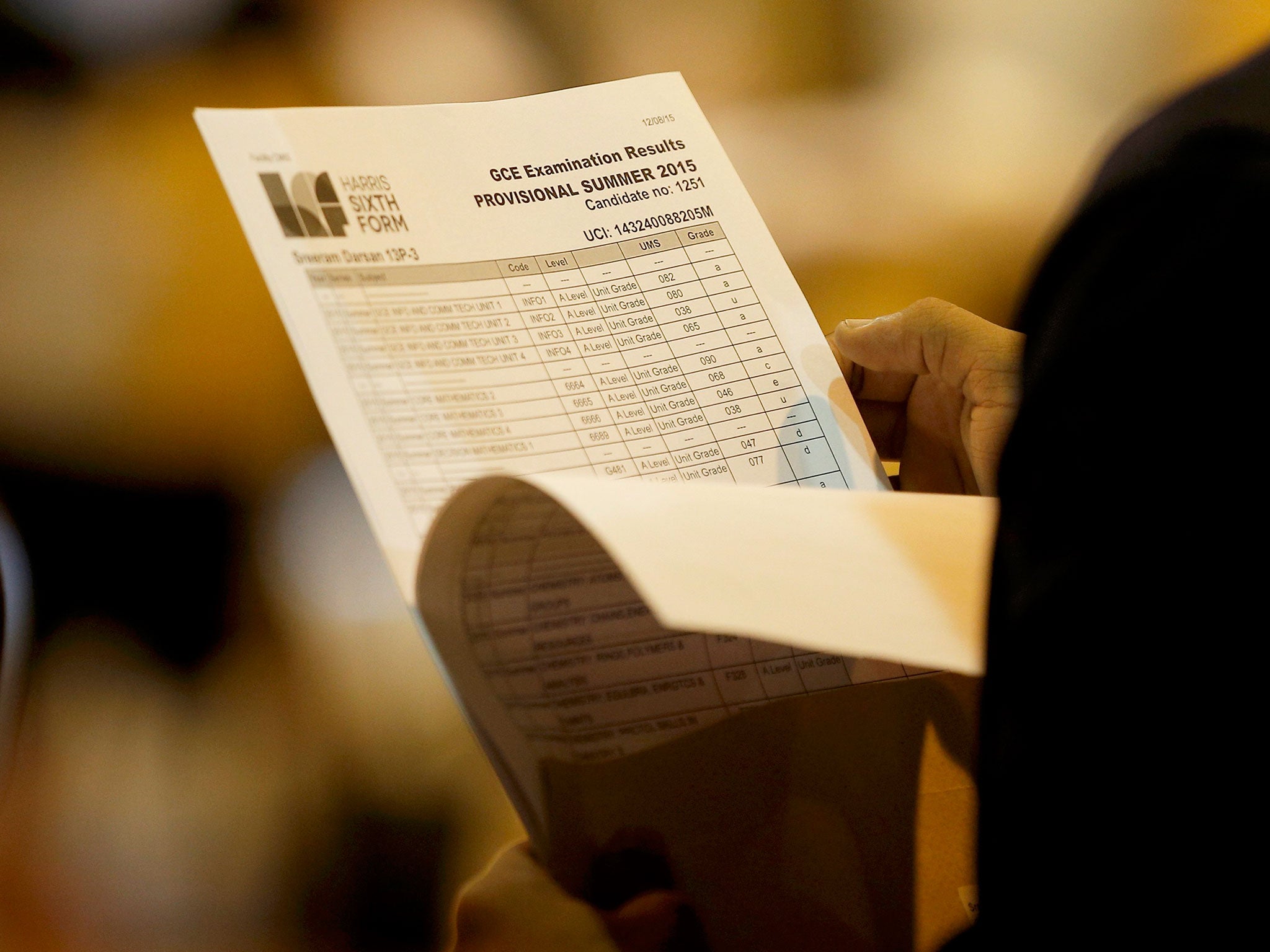A-level results day 2015 analysis: Grades may be 'stable' but questions remain
It was no surprise boards were in a hurry to get their press briefing out the way

Your support helps us to tell the story
From reproductive rights to climate change to Big Tech, The Independent is on the ground when the story is developing. Whether it's investigating the financials of Elon Musk's pro-Trump PAC or producing our latest documentary, 'The A Word', which shines a light on the American women fighting for reproductive rights, we know how important it is to parse out the facts from the messaging.
At such a critical moment in US history, we need reporters on the ground. Your donation allows us to keep sending journalists to speak to both sides of the story.
The Independent is trusted by Americans across the entire political spectrum. And unlike many other quality news outlets, we choose not to lock Americans out of our reporting and analysis with paywalls. We believe quality journalism should be available to everyone, paid for by those who can afford it.
Your support makes all the difference.Who sets and marks the tests sat by teenagers could soon all be changed. The Schools Minister Nick Gibb has let it be known he wants to look at how the examination system works – and the idea of a single exam board for each subject area has emerged in conversations among education experts again.
It was therefore no surprise that the existing boards were in a hurry to get their press briefing out of the way as quickly as possible. They did not want to engage in controversy, and repeated the mantra that everything indicated the A-level system was “stable” again and again.
That may be the case – a 0.1 per cent rise in the pass rate, and a 0.1 per cent fall in the number of A*/A grade passes awarded, is hardly the stuff of which revolutions are made.
Nevertheless, there are some extremely interesting observations to be made about this year’s results – the last year for some time in which the system will not be undergoing major changes as a result of reforms instigated by the former Education Secretary Michael Gove.
Firstly, more students are opting to take A-levels, despite a drop in the age cohort. Therefore the slight rise in the pass rate is laudable, considering the exam is now being taken by students from a wider ability range. It also helps to explain the slight drop in the A*/A grade pass rate. Another encouraging statistic is a significant rise in the A* to C grade pass rate from 76.6 per cent to 77.3 per cent.
Secondly, while there have been increases in the take-up of traditional academic subjects such as English, maths, history and geography, there is a worry about science. The uptake of biology, chemistry and physics is down by between 1.1 per cent and 1.6 per cent.
The implications of the fall in the sciences, plus design and technology, was spelt out very starkly by Paul Davies, head of policy at the Institute of Engineering and Technology. “If we don’t reverse this trend, thousands of young people are effectively closing the door on an exciting, creative career as engineers,” he said.
“We are at risk of stifling economic growth if we do not encourage more students to study Stem subjects [science, technology, engineering and maths] which are crucial to a healthy and balanced economy.”
Lastly, there is a decline in take-up of subjects such as music, German, law and design technology. Headteachers blame the squeeze on funding for schools and colleges being forced to drop these subjects.
This, again, is something that needs monitoring because these subjects – while always attracting fewer students than the main academic core – do fulfil a useful function in preparing young people for a future in the employment world.
So A-levels may indeed be “stable”, but there is still plenty to talk about below the surface.
Join our commenting forum
Join thought-provoking conversations, follow other Independent readers and see their replies
Comments